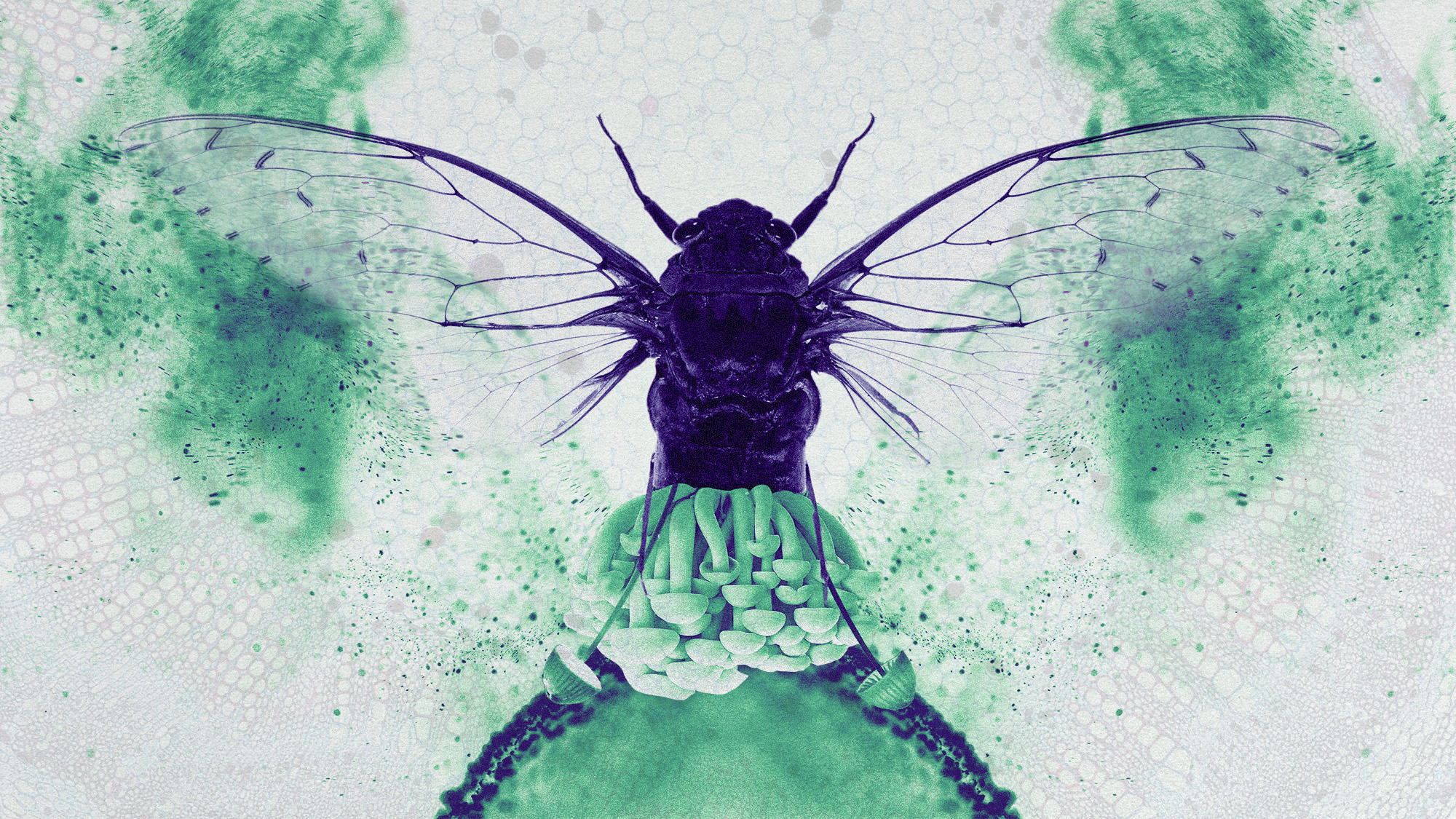Cicada-geddon: the fungus that controls insects like 'zombies'
Expert says bugs will develop 'hypersexualisation' despite their genitals falling off

A free daily email with the biggest news stories of the day – and the best features from TheWeek.com
You are now subscribed
Your newsletter sign-up was successful
Billions of cicadas are about to be "controlled like zombies" into spreading a strange fungus that "hijacks their bodies and behaviour", according to a report.
In a development worthy of a horror film, the bugs will develop "hypersexualisation" and therefore spread the fungus ever more widely, as males flirt like females, despite the fact that their genitals have fallen off, said CNN.
"The truth is actually much stranger than fiction," Dr John Cooley, an associate professor in residence of ecology and evolutionary biology at the University of Connecticut, told the broadcaster.
The Week
Escape your echo chamber. Get the facts behind the news, plus analysis from multiple perspectives.

Sign up for The Week's Free Newsletters
From our morning news briefing to a weekly Good News Newsletter, get the best of The Week delivered directly to your inbox.
From our morning news briefing to a weekly Good News Newsletter, get the best of The Week delivered directly to your inbox.
'Saltshakers of death'
Periodical cicadas spend most of their lives underground and only emerge after 13 or 17 years. But this year, two broods of cicadas will emerge in historically high numbers.
Trillions of the "baby-carrot-size insects" will be "singing their hearts out from Wisconsin to Louisiana, Maryland to Georgia, and many places in between", said Washington Post.
In an event dubbed by one expert as "cicada-geddon", the mass of bugs will emerge across several US states. Some of them will be "zombie cicadas" that are infected by the sexually transmitted fungus, said CBS News.
And what a fungus it is: it destroys the insects' genitals and replaces their abdomens with a cavity packed with fungal spores. This then manipulates the bugs into hypersexual behaviour to spread the fungus further, transforming them into what some scientists dub "saltshakers of death".
A free daily email with the biggest news stories of the day – and the best features from TheWeek.com
Not put off by the fact they by now have a "chalky gumdrop of spores instead of genitals", said CNN, the super-spreading cicadas still attempt to mate, "with gusto", thanks to the "hypersexualisation" that the fungus has installed in them.
Normally, female cicadas flick their wings to show that they're ready to mate but both male and female cicadas infected with the Massospora fungus flick their wings to draw in "amorous, soon-to-be-infected males", added the broadcaster.
Infected cicadas "seem to want to party", said the Washington Post, and although the fungal castration makes this technically impossible, the close contact makes the fungus spread around "like an STD," said an expert.
New medicine?
Although it is not entirely clear how the fungus might affect other wildlife or humans, Matthew Kasson, an associate professor of Mycology and Forest Pathology at West Virginia University, told CBS News that he's observed thousands of compounds in infected cicadas, and some could be toxic.
He said "a lot of animals" including snakes and birds are "gobbling these cicadas up" as they're emerging. "Is it possible they're having an effect on the animals that eat them? Yes, it is possible."
But the fungus could have a positive effect for humans. Researchers believe it could be a source of new medicines, he told the Washington Post, as it has been used as a traditional form of medicine for inflammation among cultures in China and New Zealand's Maori.
Meanwhile, Kasson encourages Americans not to worry about the forthcoming episode. Instead, see it as a "biological spectacle" and "one of the natural wonders of the world", he told CNN.
Chas Newkey-Burden has been part of The Week Digital team for more than a decade and a journalist for 25 years, starting out on the irreverent football weekly 90 Minutes, before moving to lifestyle magazines Loaded and Attitude. He was a columnist for The Big Issue and landed a world exclusive with David Beckham that became the weekly magazine’s bestselling issue. He now writes regularly for The Guardian, The Telegraph, The Independent, Metro, FourFourTwo and the i new site. He is also the author of a number of non-fiction books.